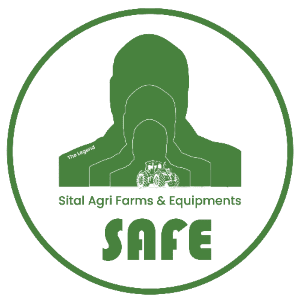How to Become a Certified Construction Equipment Operator: Step-by-Step
The construction industry continues to grow and evolve, driving demand for skilled professionals who can safely and efficiently operate heavy machinery. Whether it’s bulldozers, excavators, cranes, or loaders, becoming a certified construction equipment operator can open the door to high-paying, in-demand jobs nationwide.
Certification is a key step if you’re considering a career in construction or want to level up your skills in the trades. This guide outlines the full process of becoming a certified construction equipment operator, step by step.
Step 1: Understand the Role
Before jumping into training, it’s important to understand what construction equipment operators do. These professionals handle large machinery used to build roads, bridges, buildings, and other infrastructure. The job involves:
- Operating equipment like excavators, bulldozers, backhoes, cranes, and graders
- Following safety protocols and site regulations
- Reading blueprints and understanding grades
- Performing routine maintenance checks
- Communicating with site supervisors and crew
It’s a physically demanding role requiring good hand-eye coordination, spatial awareness, and attention to detail.
Step 2: Meet Basic Requirements
To become a certified operator, there are basic prerequisites you need to meet:
- Age: Most programs require you to be at least 18 years old
- Education: A high school diploma or GED is generally required
- Physical Fitness: You must be in good health and able to lift heavy objects
- Driver’s License: Some machinery may require a Commercial Driver’s License (CDL)
Additionally, employers often conduct drug tests and background checks before hiring.
Step 3: Choose Your Equipment Specialty
Construction equipment comes in many forms, and certifications often focus on specific machines. Some of the most common include:
- Excavators
- Bulldozers
- Backhoes
- Skid steers
- Cranes
- Graders
Decide what kind of machinery you’re most interested in operating. Some operators specialize in one type, while others are certified to run multiple machines for broader job opportunities.
Step 4: Enroll in a Training Program
You’ll need formal training to safely and effectively operate construction equipment. There are a few training options:
a. Trade Schools and Community Colleges
Many offer certificate or diploma programs in heavy equipment operation. These typically last from 8 weeks to 6 months and include both classroom instruction and hands-on training.
b. Union Apprenticeships
Unions like the International Union of Operating Engineers (IUOE) provide extensive apprenticeships. These usually last 3-4 years and include paid, on-the-job training.
c. Private Training Schools
There are also specialized training academies offering fast-track programs. Be sure to choose a school that is accredited and has a good reputation in the industry.
Step 5: Get Certified
Certification demonstrates your skills and knowledge to employers. Several organizations offer nationally recognized certification:
NCCER (National Center for Construction Education and Research):
Offers a Heavy Equipment Operations Certification with modules on specific machinery.
NCCCO (National Commission for the Certification of Crane Operators):
Specializes in crane operation certification, often required by law for crane operators.
OSHA Certification:
Though not specific to machinery, OSHA 10 or 30-hour training in construction safety is highly recommended—and sometimes required.
You may need to pass both a written and practical exam to become certified.
Step 6: Obtain Additional Licenses (If Needed)
Some equipment—like mobile cranes or trucks with trailers—may require a Commercial Driver’s License (CDL). This is especially true if the equipment is operated on public roads.
Check with your state’s Department of Motor Vehicles (DMV) or Department of Transportation (DOT) to see if you need a CDL for your specialty.
Step 7: Apply for Jobs or Apprenticeships
Once certified, you’re ready to enter the workforce. You can apply for:
-
Union jobs through trade unions
-
Non-union construction firms
-
Government contracts and infrastructure projects
-
Roadwork or utility installation companies
Having certification and training under your belt will give you a competitive advantage. Many employers prefer or even require certified operators to ensure safety and efficiency on the job site.
Step 8: Gain Experience and Continue Learning
Your journey doesn’t end with certification. Gaining on-the-job experience helps you become a more proficient operator and opens the door to supervisory roles, foreman positions, or specialization in high-paying equipment categories.
Many operators also return for advanced certifications or cross-train on additional equipment to increase their versatility and income potential.
Continuing education may include:
-
Safety refresher courses
-
New machinery operation training
-
Equipment maintenance certifications
-
Supervisory or project management training
Benefits of Becoming a Certified Construction Equipment Operator
-
Higher Earning Potential: Certified operators often earn significantly more than non-certified peers.
-
Job Security: The demand for skilled construction workers remains strong.
-
Mobility: Certifications are often recognized across states, allowing you to work nationwide.
-
Safety: Training minimizes accidents and improves safety on the job.
-
Career Growth: Opens doors to specialized roles and management tracks.
Conclusion
Becoming a certified construction equipment operator is a smart investment in your future. With the right training, certifications, and commitment to safety, you can build a rewarding career in an essential and growing industry. Follow these steps to get started, and you’ll be on your way to operating powerful machines that shape our world.

